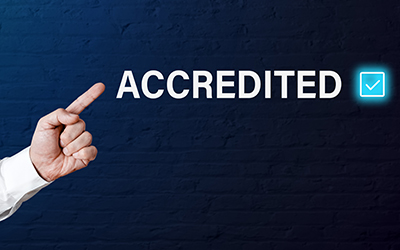When I was finishing up my bachelor’s degree in public relations, I had big dreams of working at a big, fancy agency, traveling the world spreading goodwill like a magical PR fairy godmother. I was going to run Edelman and solve world hunger, kind of big dreams. But then life takes a hold of you, as it does. And it turns out I didn’t start my career in the glamorous world of PR.
My career began in the very mundane, very practical realm of human resources. In fact, I almost didn’t work in the communications field at all. But that is a meet-cute topic for a different Hallmark straight-to-DVD movie.
What matters here is that I did come back to the communications profession. But when I arrived, years after my degree, the profession had already drastically evolved. I was expected to be proficient at design programs that weren’t part of the communications curriculum when I was in school. I was expected to know how to run a strategic social media campaign, motivate people to action through e-newsletters, get them to open marketing emails, and spend money on my calls-to-action. I hadn’t thought about this kind of stuff in years. It was a little scary, and I knew I needed help. To make matters worse, I had no professional network. I had just moved to a new town, and I knew zero people who worked in communications within 75 miles.
Where I really lucked out was my search for communications organizations in my area brought me to the local PRSA chapter website. The fact that the chapter was part of a greater, national network appealed to me. It meant that this organization had some lasting power, and that no matter where my newborn career in communications took me, I’d still be able to connect with other professionals. Plus, the national membership gave me access to an entire online library of professional development webinars and resources. Those online tools are what saved my bacon as a baby public relations professional and allowed me to thrive.
But it got better. There was a chapter board member within the organization where I just got hired. They saw my name appear on the chapter roster and immediately reached out. And suddenly, I wasn’t alone anymore. I had resources, professional development options, and I had my first PR mentor who encouraged me to get involved with the chapter. My professional network expanded drastically, and this was critical for my success with the growing media relations duties at my job.
Moving to the next step
Getting involved with PRSA led me to my first leadership role as a chapter board member. I got to represent my colleagues at the PRSA National Assembly. This experience gave me some much-needed confidence and some professional clout at the office. That’s also about the time I learned about PRSA’s accreditation program and the R-P-I-E framework for strategic communications. Pursuing my APR was a throwback to my college classes, but with the key difference that the emphasis was on learning through case studies and real-world implementation. I was better equipped to develop, pitch, and implement better communications strategies and long-term planning for my company. The best part of all? The community of professionals I can call on if I have questions, need a sounding board, encounter challenges in a campaign, or need advice. Getting connected through PRSA and obtaining my APR have been leading reasons why I have realized success in my career.
So if you’re considering a career in public relations, join PRSA! No matter what your professional interest is, PRSA has a district, chapter, section, or special interest group that will help you to connect with other communicators in that same interest area.
If you’re looking for a professional development program that will take your communications career to the next level, I encourage you to consider APR accreditation. It is a national benchmark for excellence in the profession, and it is the reason I’ve landed jobs, rebounded from crisis, been recognized as an expert, and been given a seat at the leadership table.
And for the rest of my current APR colleagues, if you see a new hire in your company or know of a young professional just entering their career, I encourage you to reach out and invite them to get involved. It may make the difference for the rest of their career.
###

I’m excited to go tot he event on May 25th. Lori, one of the main reasons I’m willing to do the APR is because of how passionate you’ve been in sharing its virtues. You’re such a great APR ambassador.
Thanks, Brandon! PRSA truly has been a remarkable community for me, and I’m glad you are a part of it!